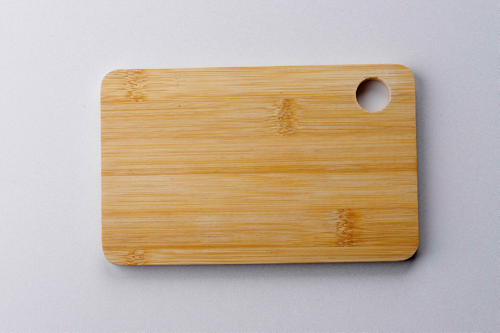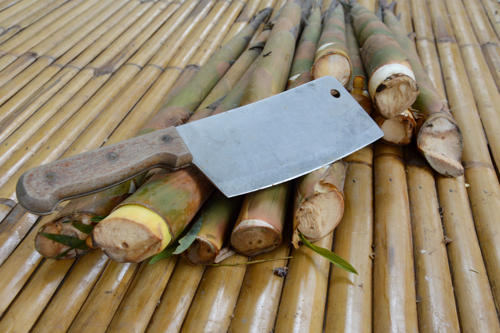Cooking is an art form, and like any other, it requires the right tools to create masterpieces. The importance of a good knife and cutting board cannot be overstated. One popular choice for cutting boards is bamboo. However, it's important to understand how bamboo can react with knives and potentially impact your cooking.
The Appeal of Bamboo Cutting Boards

Bamboo cutting boards have rapidly grown in popularity due to their attractive appearance and perceived sustainability. They're harder than most hardwoods, which makes them a durable option. Here are a few reasons why cooks are drawn to bamboo:
- Sustainability: Bamboo grows incredibly fast, making it a renewable resource.
- Durability: Bamboo is harder than most woods, providing a long-lasting cutting surface.
- Hygiene: Bamboo is less porous than wood, reducing the risk of bacteria seeping into the board.
The Interaction Between Bamboo and Knives

Despite its appeal, bamboo's interaction with knives can be a double-edged sword (pun intended). Here's what you need to know:
Potential Blunting of Knives
Due to its hardness, bamboo can potentially dull knives quicker than softer cutting board materials. This can affect the efficiency of your food preparation and the quality of your knife cuts.
Splintering Risk
Over time, bamboo cutting boards may start to splinter, particularly if they are not properly maintained. These tiny splinters can end up in your food, posing a potential health risk.
Impact on Food Preparation
The hardness of bamboo can also affect your food preparation. For example, it might be more difficult to cut through certain foods smoothly, which could impact the presentation and even the cooking process of your dishes.
Noise Factor
Another often overlooked factor is the noise produced when a knife hits a bamboo board. The hard nature of bamboo can result in a louder chopping sound, which might be a consideration for some cooks.
Environmental Considerations
While bamboo is a renewable resource, the process of turning it into a cutting board often involves the use of glue to bind the bamboo strips together. Some of these adhesives may contain formaldehyde, which can be harmful if ingested in large quantities. Therefore, it's important to choose high-quality bamboo boards from reputable manufacturers.
Mitigating the Effects
To ensure a positive cooking experience with bamboo cutting boards, consider these tips:
- Regularly Sharpen Your Knives: To counteract the blunting effect of bamboo, make sure to sharpen your knives regularly. This will keep them in top form and extend their lifespan.
- Proper Maintenance: Regular cleaning and oiling can help prevent your bamboo cutting board from splintering. Be sure to use food-grade mineral oil.
- Use Separate Boards: To avoid cross-contamination, use separate boards for different food types such as raw meat, cooked food, and vegetables.
Final Thoughts
While bamboo cutting boards are an appealing option due to their sustainability and durability, it's important to understand their potential effects on your knives and cooking. With proper care and maintenance, you can mitigate these effects and enjoy the benefits of this eco-friendly cutting board option. Happy cooking!








